“Psst, psst, psst, psst” echoes enticingly throughout the gilded hall of the Schönbrunner Schlosstheater. White shrouds hanging above the stage allude to the moon, which lights what has just been rehearsed: a nocturnal forest scene in which two women coyly approach a man lying on the ground. At first, the man doesn’t know quite what to make of their mischievous initiatory move—but he ultimately does give himself over to the merry dance, resigning himself to his fate with the declaration, “I love the both of you.”
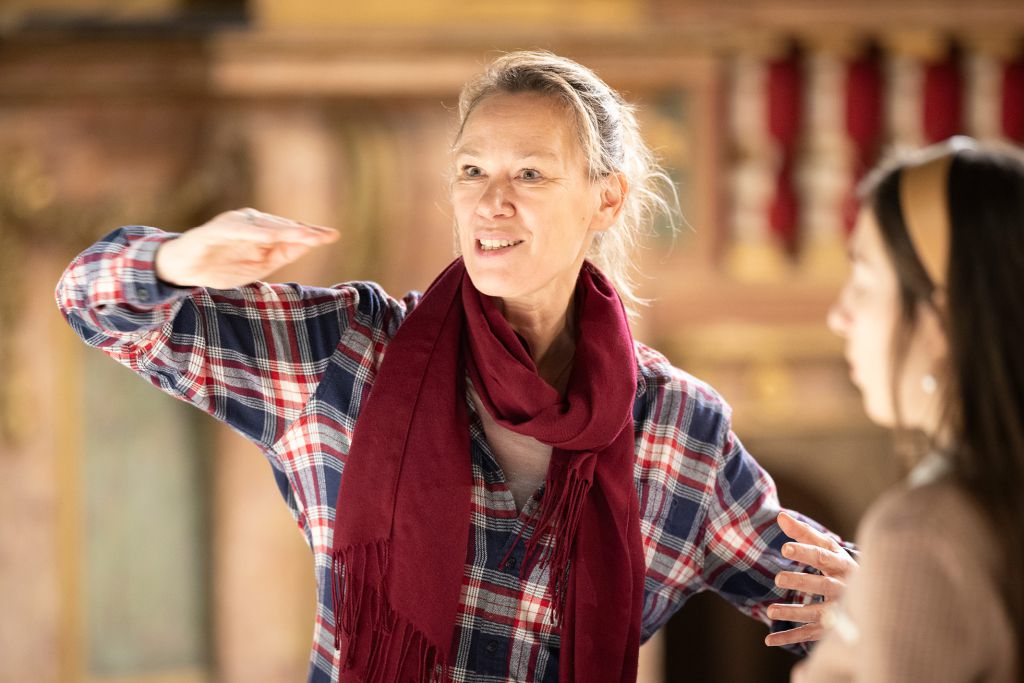
Such were the scenes that one could observe in February’s rehearsals for the mdw opera production Die lustigen Weiber von Windsor, which premières this March. Starting from Shakespeare’s eponymous comedy The Merry Wives of Windsor and Otto Nicolai’s German-language Singspiel of 1849, director Helen Malkowsky teamed up with music director Hartmut Keil and mdw students to develop a contemporary version of this material.

“In conceiving our production, I naturally asked myself: What does one do with a Singspiel-like opera such as this one? Does it still have anything to say to us today?” recalls Malkowsky, a professor of musical theatre directing and stage performance at the Department of Vocal Studies and Music Theatre since 2018. The themes addressed by Die lustigen Weiber von Windsor are, in any case, timeless ones: “It’s about jealousy and infidelity and asks questions like: What’s good and bad about an affair? And: Just what is adventure?”
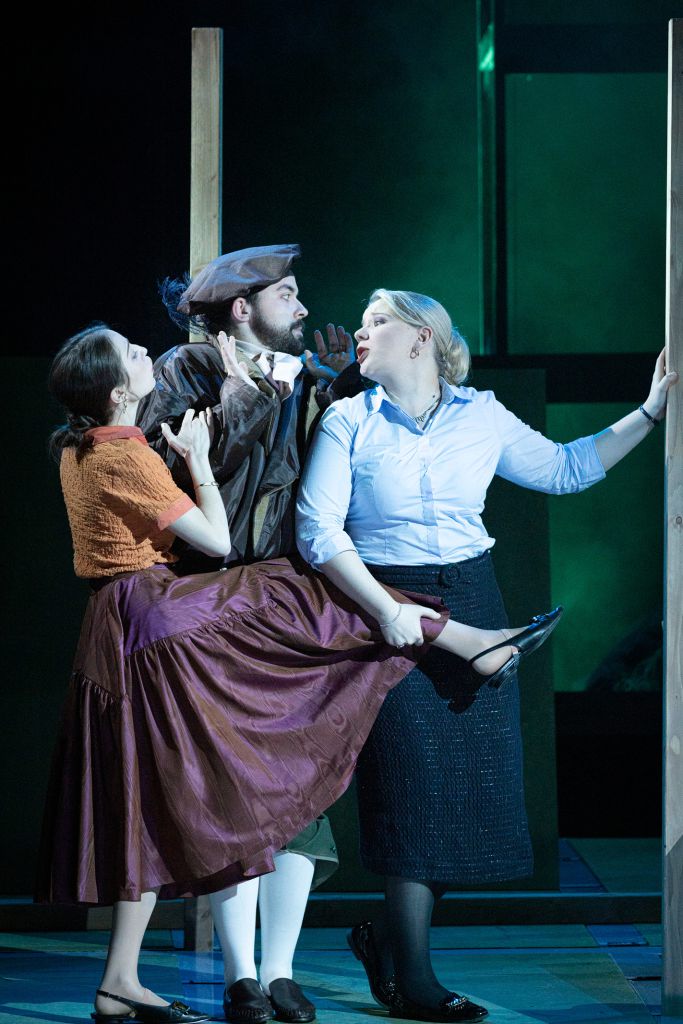
By way of giving history its due, Malkowsky borrowed characters from various Shakespeare texts. But even so, the intent was to tell the story in a contemporary manner “with the people we are today and in the environment that we experience today.”
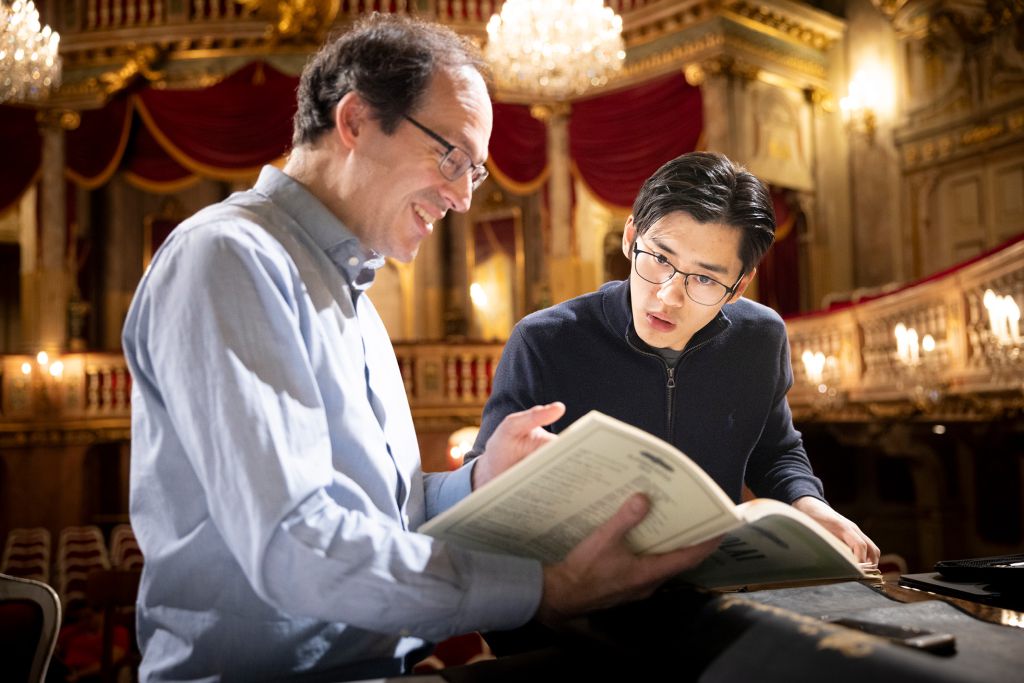
Hartmut Keil, a conductor and professor of musical interpretation at the Department of Vocal Studies and Music Theatre, views the mdw’s operatic productions as an opportunity both for the participants and for the University as a whole. “It gives us a chance to bring various departments together. The realm of orchestral training meets students from the Department of Vocal Studies and Music Theatre, here, and conducting students are also involved as assistants.” Opportunities to jump the gaps between departments are rather rare, he says, going on to characterise such instances as “crucial in the context of broader higher education policy.”
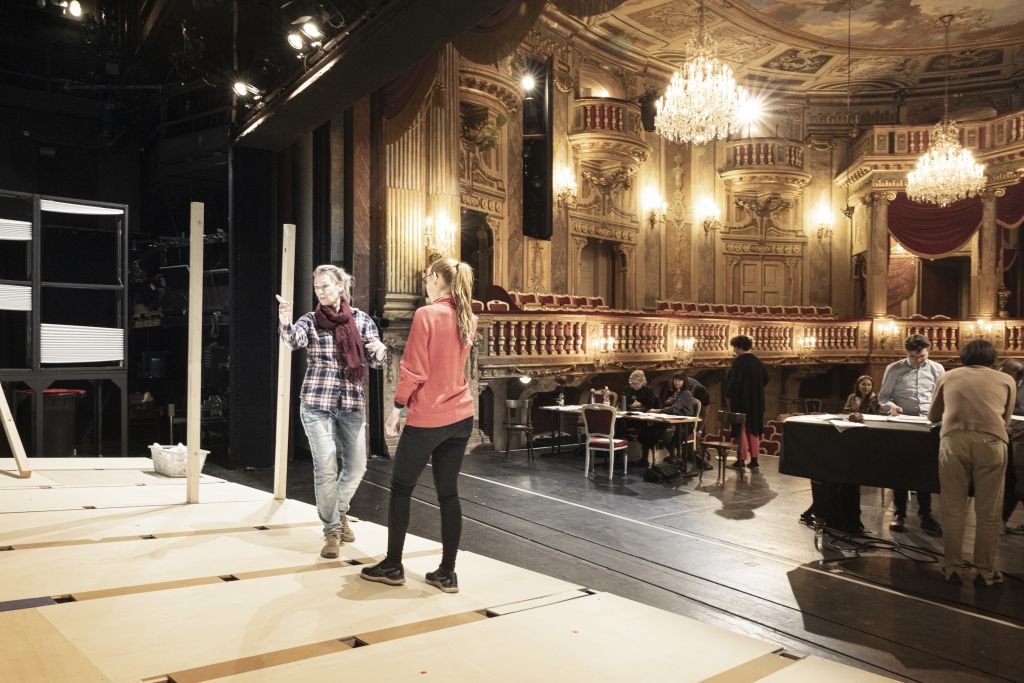
Director Helen Malkowsky likewise wanted to get a large number of students involved, for which reason the leading team double-cast the ten available roles. This enabled the greatest possible number of students to get acquainted with the basic processes of the “complex area of work that is opera” and learn the genre from the ground up. The work to convey all this was particularly rewarding: “It’s so great because the students come to it as more or less blank slates,” remarks Malkowsky.
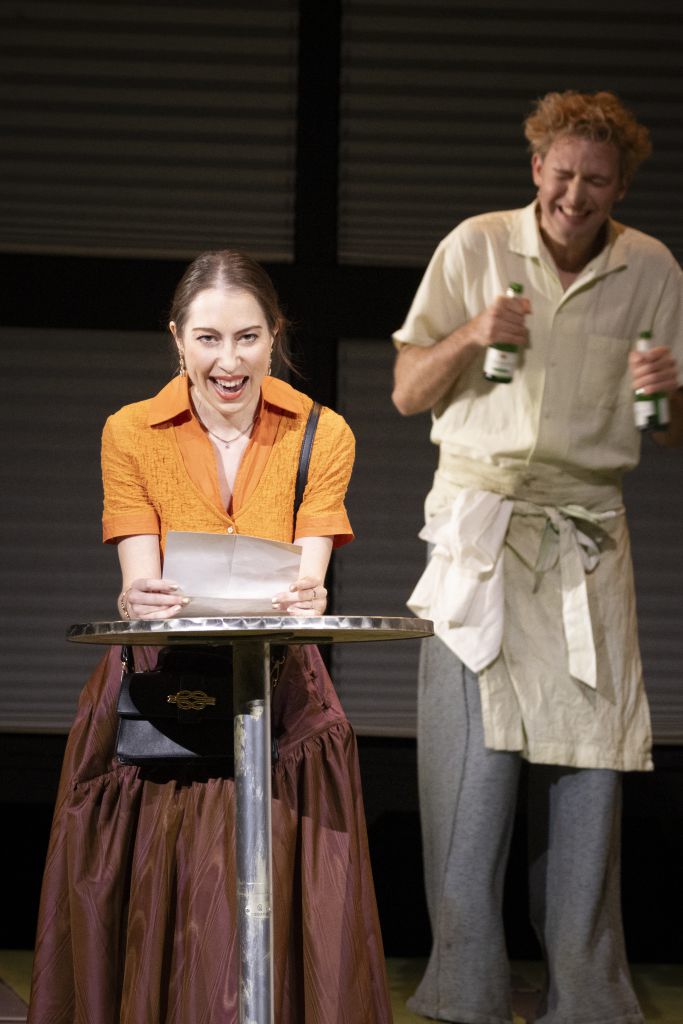
This also applies in a certain sense to Maja Triler, a Vocal Performance and Stage Performance MA student who sings the role of “Frau Fluth” in this production. “Working on projects like this one gets me really stoked and enables me to develop my skills more easily. By being here nearly every day, I can observe and learn from the progress everyone else is making and constantly improve.”

It’s important, she says, to go beyond practising in one’s own room and rehearse the typical sequences of a real performance onstage and in costume. “Where else would I learn this, if not here”?
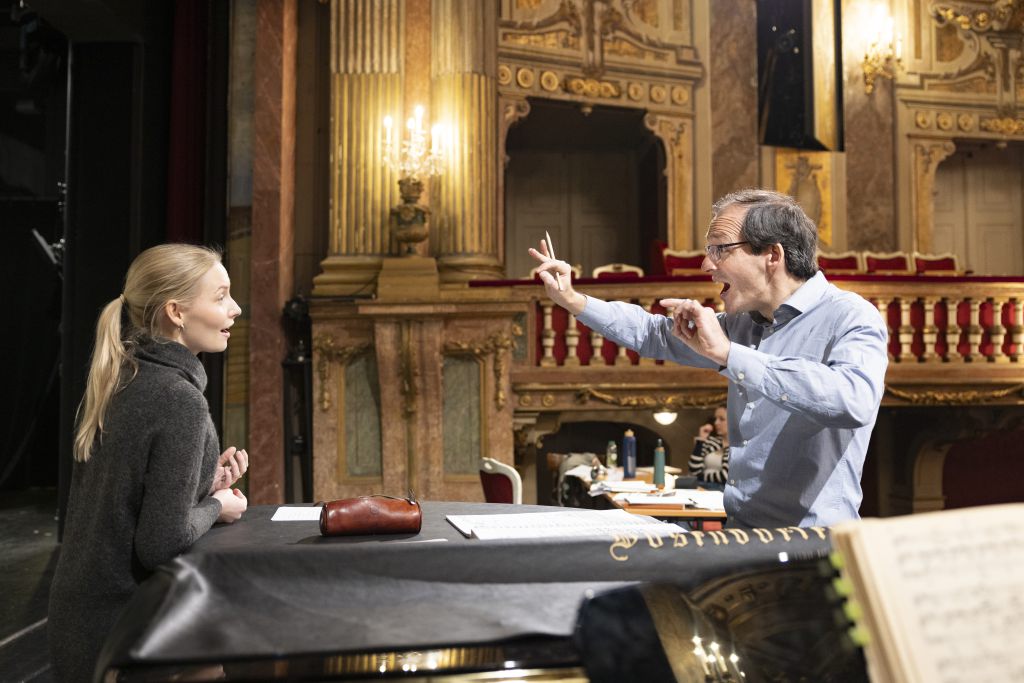
The pitter patter of the piano in the Schlosstheater continues, wholly in keeping with the comedy being rehearsed. But onstage, things briefly get serious—if in a playful way. Under Helen Malkowsky’s watchful eye, the three singers put their minds and bodies to a technical exercise.

“How may I touch you?” is the central question. “Trust each other! We live by trust—it’s all that we have,” says Helen Malkowsky to encourage the three students, who show each other the places on their arms and shoulders where they want to be touched.
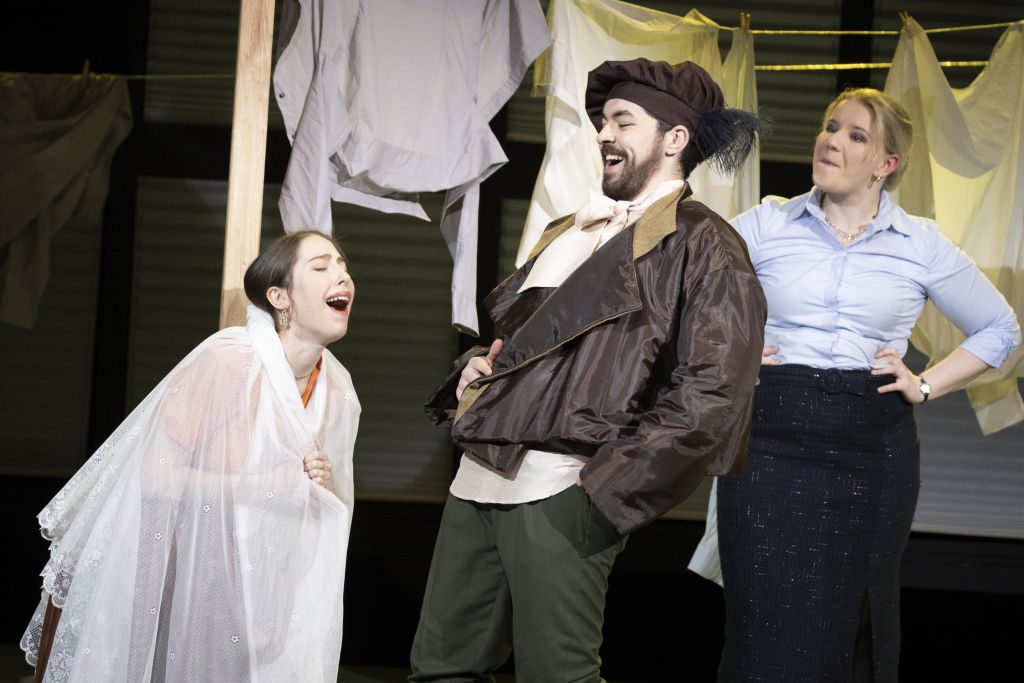
“In a new constellation of stage performers, this exercise is standard; people are becoming more and more attuned to such things,” explains Hartmut Keil. Precisely this kind of focus on safe performing, where everyone involved can establish boundaries, is of central importance to Hartmut Keil even in the initial training phase.

“Sadly, we’re all familiar with raging directors, dictatorial theatre heads, and the like. But to my mind, it’s nonsense to say that students need to be confronted with these negative aspects early on to ‘toughen them up’.” I think we need to train a new generation of artists who have the confidence to demand that certain things change.” Only emancipated artists, he says, can succeed in putting a stop to abuses of power in the arts. “It’s part of our responsibility as educators to show that things can also be done in a humane way.”
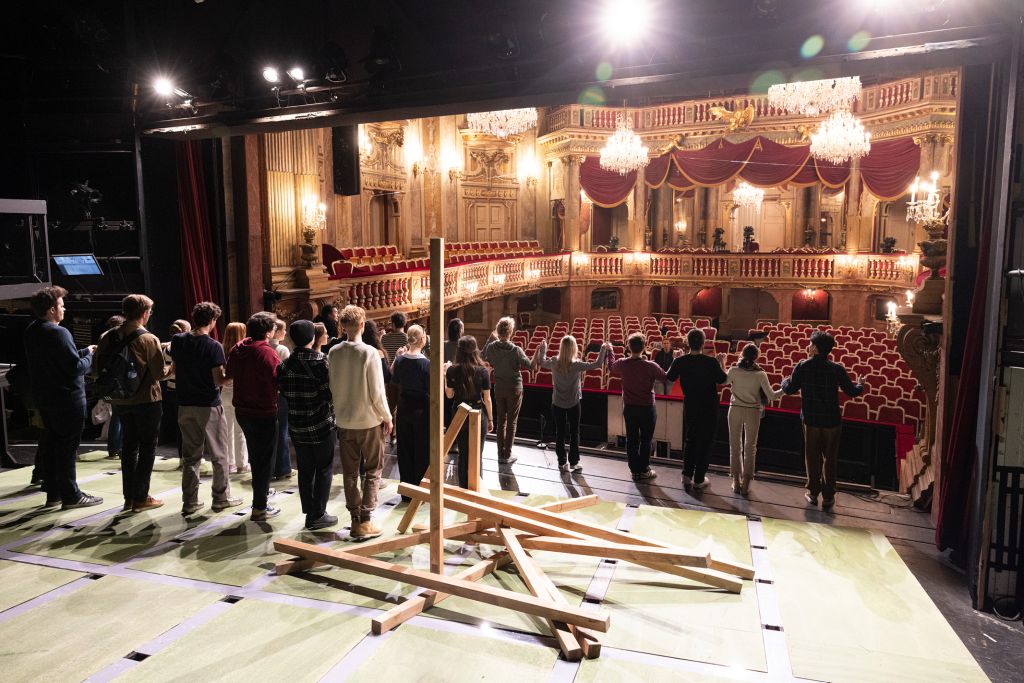
“Psst, psst,” one hears again from the stage. Night has returned, and the performers are getting in position for their next run-through. A quick shout here, a final directorial instruction there, and things get serious once more—but the fun continues.

